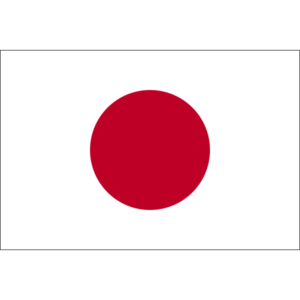Investor interest in Japanese stocks is on the rise again, driven by corporate transformations, subtle signs of inflation after decades of deflation, and global trade dynamics. After a volatile 2024, Japan’s market offers potential opportunities for diversification and returns, positioning it as a market to watch.
Japanese stocks entered 2024 with robust momentum, only to face a sharp correction in August after an unexpected interest rate hike by the Bank of Japan. The market has since been steadily recovering, though yen weakness has dampened dollar-based returns. The iShares MSCI Japan ETF saw modest gains of 7%, far below the 30% return of its hedged counterpart, the WisdomTree Japan Hedged Equity Fund. Yet, with Japanese equities trading at a favourable 15 times forward earnings, valuations remain compelling, especially in light of ongoing corporate and economic shifts.
Masakazu Takeda of the Hennessy Japan Fund projects earnings growth in the mid-single digits, buoyed by shareholder-friendly moves like dividends and buybacks. Such initiatives could drive double-digit returns, barring any significant global disruptions. While initial 2025 market conditions may remain turbulent due to geopolitical and economic uncertainties, underlying shifts in corporate behaviour are emerging as a powerful driver of long-term growth.
Japan’s corporate landscape is undergoing a transformation, marked by landmark developments. A wave of activist investor interest and record delistings via management buyouts signal a shift towards enhanced shareholder value. Notable corporate shake-ups, such as the Seven & i Holdings battle and the Honda-Nissan merger, highlight increasing pressure for companies to modernise and focus on efficiency. These trends have spurred changes, including divestitures of unprofitable divisions and capital structure improvements.
This new focus extends to export-driven businesses. Japanese companies have long invested in overseas production, positioning them to weather trade volatility and tariffs better than their global peers. Companies like Shin-Etsu Chemicals and automation leaders Nidec and Keyence stand to benefit as exporters adjust operations to mitigate rising wage costs and potential geopolitical barriers.
Domestically, rising wages and an end to Japan’s deflationary cycle are boosting consumer-focused businesses. Rakuten Group is well-positioned to thrive, with its diversified offerings spanning retail, travel, and a burgeoning online banking platform. As its mobile network investment reaches break-even, Rakuten’s valuation relative to sales suggests strong potential for growth.
Orix Corporation, another standout, is poised to gain from Japan’s tourism revival and increasing consumer spending. Its operations span sectors such as airport management and aircraft leasing, which benefit from global supply-chain challenges. Moreover, Orix’s financial arm is set to capitalise on the Bank of Japan’s gradual interest rate normalisation, offering an attractive dividend yield of 4%.
While Japan’s market isn’t without risks, including protectionist policies and geopolitical tensions, its ability to adapt and innovate positions it as a compelling opportunity. With strong corporate earnings, structural reforms, and a renewed emphasis on shareholder returns, Japan offers a blueprint for navigating an increasingly complex global economy.
Japan’s economic and corporate transformation is fostering growth across sectors, from automation and export-driven industries to consumer-focused businesses and tourism. These shifts, alongside a focus on shareholder value, make it an attractive destination for investors seeking diversification and long-term returns.
Fidelity Japan Trust PLC (LON:FJV) aims to be the key investment of choice for those seeking Japanese companies exposure. The Trust has a ‘growth at reasonable price’ (GARP) investment style and approach – which involves identifying companies whose growth prospects are being under-appreciated or are not fully recognised by other investors.



